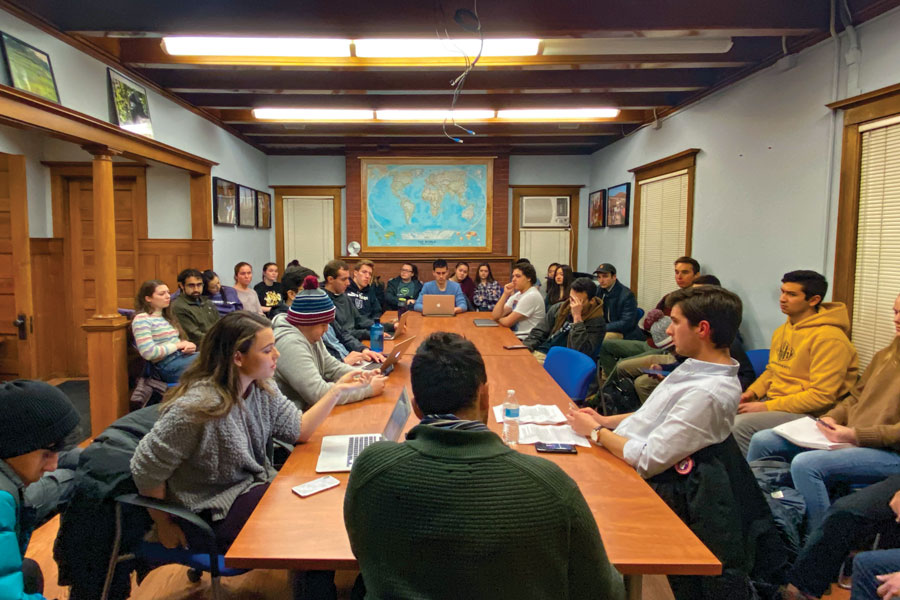Northwestern Political Union debates electability, stances of Democratic candidates
Daily file photo by Spencer Allan
After an emotional closing statement, the Northwestern University Political Union voted that the Democratic party should nominate a progressive candidate.
February 11, 2020
Northwestern University Political Union debated whether the Democratic Party should nominate a centrist over a progressive candidate at its Monday session. Meeting attendees narrowly voted against the resolution 12-11 with eight abstentions, deciding that a progressive candidate is better positioned to defeat President Donald Trump this November.
The debate followed the Iowa Caucus, in which Pete Buttigieg, Mayor of South Bend, Ind., was distributed two more delegates than U.S. Sen. Bernie Sanders (I-Vt.). As a self-identified democratic socialist, Sanders was the favored progressive candidate in Iowa, while Buttigieg’s more moderate policies made him the state’s leading centrist. Attendees debated which of the two ideologies should represent the Democratic party.
Speaking in favor of the resolution was Weinberg senior Jake Gordon, who argued that the Democratic party must prioritize electability among moderate swing voters. Citing the results of the 2018 midterm elections, Gordon said independent voters have a deciding influence on elections and are more likely to support a moderate candidate. Gordon also said the economic policies of progressive candidates are too alienating to this key demographic.
“What are we thinking?” Gordon said. “That the people in the middle of the country are going to vote for a socialist when they were raised in the 1980s when socialism was considered evil? The idea that Bernie or Warren could change that is silly.”
Weinberg freshman Will Secker agreed with Gordon’s concerns about progressive economic policies. He argued that as the economy continues to grow under the Trump administration, fewer Americans will identify with Sanders’ message about a broken economic system. Moderate voters would feel more comfortable with centrist candidates, who might not threaten that economic prosperity, he said.
Bienen dual-degree junior Sarah Bryant spoke in opposition to the resolution, arguing that Democrats need to focus on mobilizing groups with traditionally lower voter-turnout rates. Bryant said progressive candidates more effectively generate voter enthusiasm, drive grassroots campaigns and increase turnout among younger, marginalized communities. This upcoming election requires an upset, she said.
“You need a jolt to the system and a progressive who will advocate for all people,” Bryant added. “That’s what a progressive in the White House would do.”
Some attendees, however, still had reservations. Weinberg sophomore Ansh Prasad was not convinced that a progressive could defeat Trump without appealing to swing voters.
“There has been a vilification of progressivism that makes it very hard for swing voters to vote for them,” Prasad said.
In an emotional closing statement, Bryant moved away from the topic of electability to discuss how progressive policies would impact a struggling lower class.
Progressives advocate for those the status quo has left behind, she argued.
“We don’t need another race where a moderate gets beaten by Trump,” Bryant said. “We need to reinvigorate American politics and elect a progressive.”
Email: [email protected]


